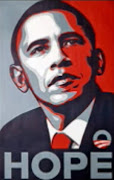Joy's Reading
One of the signs that things have gotten real bad mood wise is when I stop reading. Tho I never stopped entirely this fall/winter it had slowed to a trickle and the ability to compose my thoughts about what I was reading dried up entirely.
I find that depression is a bigger handicap than visual impairment for reading.
But, as bad as it has been. things must be looking up as I've been reading more again recently. More often, more pages per day, more minutes at a stretch, more complex material. And finding myself as I read with things to say about it. So maybe its time to bring book reviews back into the mix.
Last week I grabbed two 'read now' ARC off NetGalley and requested another and am contemplating requesting a fourth. Seeing how I've not posted reviews for months and did not provide feedback on any in the last batch of NetGalley ARCs in late 2013 I'm not holding out much hope for any requests. But my chance for future requests would go up if I read and review these two pronto:
Edited by Michael Newton
Oxford University Press
Pub Date May 1 2015
Description
The Victorian fascination with fairyland is reflected in the literature of the period, which includes some of the most imaginative fairy tales ever written. They offer the shortest path to the age's dreams, desires, and wishes. Authors central to the nineteenth-century canon such as Thackeray, Oscar Wilde, Ford Madox Ford, and Rudyard Kipling wrote fairy tales, and authors primarily famous for their work in the genre include George MacDonald, Juliana Ewing, Mary De Morgan, and Andrew Lang. This anthology brings together fourteen of the best stories, by these and other outstanding practitioners, to show the vibrancy and variety of the form and its ability to reflect our deepest concerns.
The stories in this selection range from pure whimsy and romance to witty satire and darker, uncanny mystery. Paradox proves central to a form offered equally to children and adults. Fairyland is a dynamic and beguiling place, one that permits the most striking explorations of gender, suffering, love, family, and the travails of identity. Michael Newton's introduction and notes explore the literary marketplace in which these tales appeared, as well as the role they played in contemporary debates on scepticism and belief. The book also includes a selection of original illustrations by some of the masters of the field such as Richard Doyle, Arthur Hughes, and Walter Crane.
The Witch of Napoli
Michael Schmicker
AuthorBuzz
Palladino Books
Pub Date Jan 15 2015
Description
Historical fiction with a paranormal twist, set in Italy and England in 1899.
Italy 1899: Fiery-tempered, erotic medium Alessandra Poverelli levitates a table at a Spiritualist séance in Naples. A reporter photographs the miracle, and wealthy, skeptical, Jewish psychiatrist Camillo Lombardi arrives in Naples to investigate. When she materializes the ghost of his dead mother, he risks his reputation and fortune to finance a tour of the Continent, challenging the scientific and academic elite of Europe to test Alessandra’s mysterious powers. She will help him rewrite Science. His fee will help her escape her sadistic husband Pigotti and start a new life in Rome. Newspapers across Europe trumpet her Cinderella story and baffling successes, and the public demands to know – does the “Queen of Spirits” really have supernatural powers? Nigel Huxley is convinced she’s simply another vulgar, Italian trickster. The icy, aristocratic detective for England’s Society for the Investigation of Mediums launches a plot to trap and expose her. The Vatican is quietly digging up her childhood secrets, desperate to discredit her supernatural powers; her abusive husband Pigotti is coming to kill her; and the tarot cards predict catastrophe.














0 tell me a story:
Post a Comment